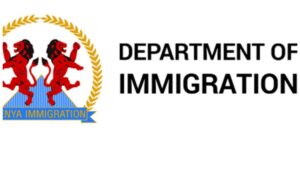NHIF issues new premiums, caps deduction at Sh5,000 for top earners

Ruto administration caps NHIF deduction at Sh5,000 for top earners on Social Health Insurance Bill, 2023
Ruto administration caps NHIF deduction at Sh5,000 for top earners on Social Health Insurance Bill, 2023.
Workers earning Sh181,818 and above have been spared from paying higher contributions to the yet-to-be-formed Social Health Insurance Fund after the State opted to cap the premiums at Sh5,000.
High-income earners would have paid upwards of Sh22,000 per month under an earlier proposal in the Social Health Insurance Bill, 2023 to have graduated payments set at 2.75 percent of gross monthly pay.
Acting CEO Samson Kuhora of the National Health Insurance Fund (NHIF) and Health Cabinet Secretary Susan Nakhumicha stated that the rates will be reviewed with the minimum premium for formal workers being capped at Sh300.
“From the views, the upper and lower caps on premiums need to be applied in our setting. That is what informed the 2.75 percent of gross earnings up to the cap of Sh5,000 per month,” Mr Kuhora said.
“About 1.8 percent of the estimated formal sector earners will be affected.”
Going by the earlier proposal with contributions pegged as a percentage of gross pay, workers getting Sh350,000 could have been compelled to pay Sh9,625 and Sh13,750 for those paid Sh500,000.
Workers getting Sh800,000 could have paid Sh22,000 as premiums to the compulsory national health insurance.
Currently, monthly contributions to NHIF for formal workers are graduated depending on one’s pay and range between Sh150 and Sh1,700 while those for informal sector workers are Sh500.
The State expects the enhanced contributions to give its plan to roll out universal health coverage (UHC) a lifeline, with higher charges on top earners being used to subsidize low-income households.
Compulsory membership in the social healthcare scheme will increase the financial burden on it to pay medical claims for millions of Kenyans, prompting the shift in how premiums are calculated.
The Bill is undergoing public scrutiny before tabling in Parliament where it is expected to be passed, setting the stage for the roll-out of UHC.
Maina Njenga recounts his ordeal at the hands of abductors
Ruto increases foreign borrowing after revising the 2023/24 budget
Former Mungiki leader Maina Njenga charged with weapons possession
SRC moves to scrap more allowances for civil servants
Ruto should immediately fire David Ndii and CS Kuria; Boni Khalwale
UHC will now be modeled on three separate funds—one for preventive and primary health care, another for primary referrals, and a third fund for foot treatment of chronic diseases.
Membership in the new national health scheme for all Kenyans aged 18 years and above will be compulsory under the yet-to-be-published regulation.
Kenyans without proof of up-to-date contributions will be denied State services, bringing social health care membership to the same league as Kenya Revenue Authority (KRA) Personal Identification Numbers (PINs).
The Bill is one of the four that the new administration has lined up to amend the NHIF Act as President William Ruto picks up from his predecessor, Uhuru Kenyatta in the race to ensure the roll-out of universal healthcare.
The others are the Primary Healthcare Bill, of 2023, the Digital Health Bill, of 2023, and the Facility Improvement Financing Bill, of 2023, which are currently undergoing public scrutiny.
Also read,
Kenya extends Saudi Aramco & UAE fuel deal for one year
Miguna goes ballistic on CS Kuria, ‘You’re not even fit to be a clerk’
Moses Kuria claps back at Gachagua over fuel cost utterances
Ex-Mungiki leader Maina Njenga released after abduction
Government imposes mandatory conditions for Kenyans seeaking jobs Saudi Arabia
Follow us





